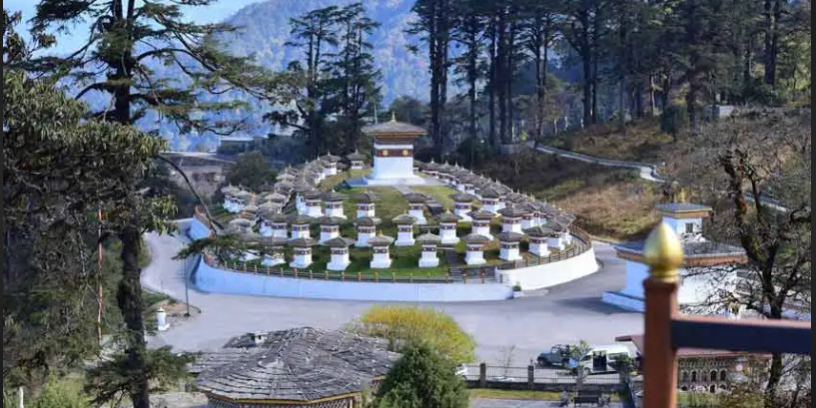Situated amidst the Eastern Himalayas, Bhutan is a distinctive tourism destination. Bhutan is well-known for its stunning scenery, vibrant culture, and dedication to happiness. It is also a leading innovator in environmentally responsible travel. Bhutan is the only carbon-negative nation in the world, hence it has very high standards for environmental preservation. Let’s examine what makes Bhutan an environmentally friendly travel destination and how it minimizes its negative effects on the environment.
Bhutan’s Carbon-Negative Status
Bhutan’s eco-friendliness is best highlighted by its carbon-negative status. This small Himalayan kingdom absorbs more carbon dioxide than it produces. Bhutan’s vast forests, which cover about 70% of its land, play a crucial role in this. These forests act as a carbon sink, absorbing millions of tons of carbon dioxide every year. Additionally, the country relies heavily on hydroelectric power, which is a clean and renewable energy source. By exporting surplus electricity, Bhutan offsets its carbon footprint even further.
But Bhutan’s commitment to eco-friendliness goes beyond carbon neutrality. The country has a strong environmental policy that prioritizes conservation over commercial gain. For instance, the constitution mandates that at least 60% of Bhutan’s land must remain forested for all time. Such measures ensure that Bhutan’s natural beauty and biodiversity are preserved for future generations.
Policies for Eco-Friendly Travel
Bhutan’s eco-friendly tactics heavily rely on its approach to tourism. “High-value, low-impact” tourism is the national tourism policy. This indicates that Bhutan charges a daily fee in order to restrict the number of visitors. This cost covers lodging, meals, transportation, and a royalty for sustainable tourism. The goal is to maximize financial gains while minimizing negative effects on the environment. Consequently, travellers get a unique, uncrowded, and sustainable experience in Bhutan.
In Bhutan, it’s common to find environmentally friendly lodging options. Many guesthouses and hotels are powered by renewable energy sources and constructed with sustainable materials. Local tour leaders receive training to encourage environmentally friendly behaviour and inform guests about Bhutan’s distinctive landscape. Initiatives for recycling and waste management are also in place to lessen pollution. Through encouraging eco-friendly travel, Bhutan guarantees that visitors can take in the splendour of the nation without endangering the environment by encouraging eco-friendly tourism.
Community Involvement in Conservation
Another key factor that makes Bhutan eco-friendly is the involvement of local communities in conservation efforts. In Bhutan, environmental conservation is not just a

government policy; it’s a way of life. Communities actively participate in preserving forests, protecting wildlife, and managing natural resources. Local people are deeply connected to their environment and understand the importance of maintaining it.
For instance, Bhutanese farmers practice sustainable agriculture, avoiding chemical fertilizers and pesticides. This not only protects the soil and water but also maintains the health of local ecosystems. Moreover, many communities engage in reforestation projects, planting trees to restore degraded lands. By involving communities, Bhutan ensures that conservation efforts are sustainable and beneficial for everyone.
Additionally, traditional Bhutanese beliefs and cultural practices support environmental protection. The concept of Gross National Happiness (GNH) emphasizes the importance of harmony between humans and nature. This philosophy shapes Bhutan’s policies and practices, reinforcing the country’s commitment to eco-friendliness. #ads
Conclusion
Bhutan’s eco-friendly approach is a model for the world. Its carbon-negative status, eco-friendly tourism policies, and community involvement in conservation make it a truly sustainable destination. By visiting Bhutan, travelers not only experience stunning landscapes and vibrant culture but also support a country that prioritizes the environment. For those seeking an eco-friendly adventure, Bhutan is an ideal choice. Explore Bhutan’s natural beauty while contributing to a greener future.
With its dedication to preserving the environment and promoting sustainable tourism, Bhutan shows that it is possible to balance development with eco-friendliness. As more travelers seek destinations that align with their environmental values, Bhutan will continue to shine as a leader in eco-friendly travel.
Disclaimer: Some links on this page are affiliate links. We may earn a small commission from Amazon, Got Backup, and other partners if you make a purchase—at no extra cost to you.







